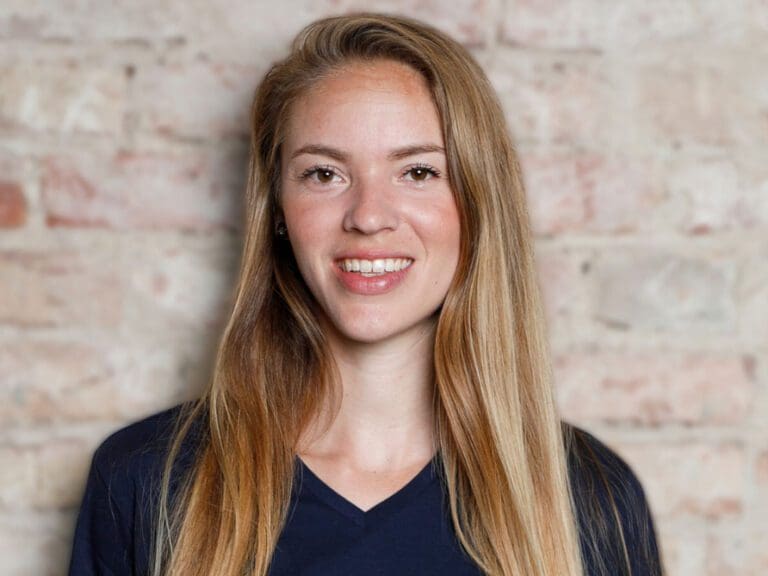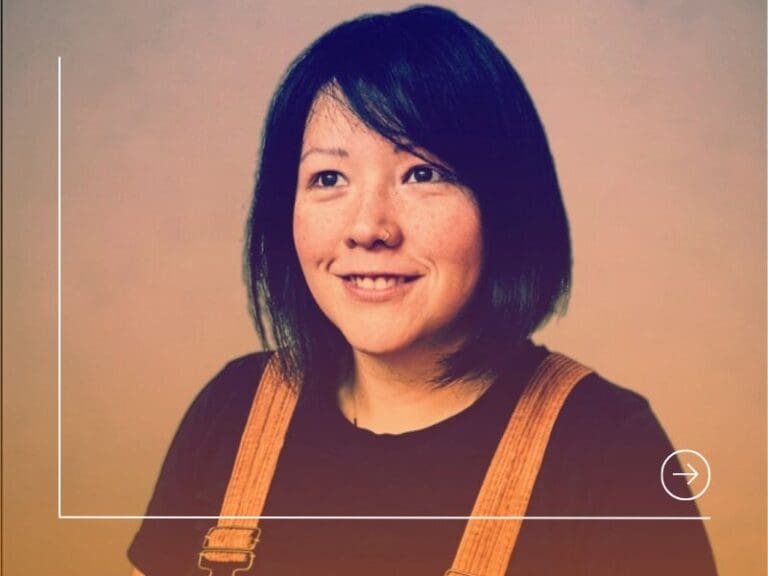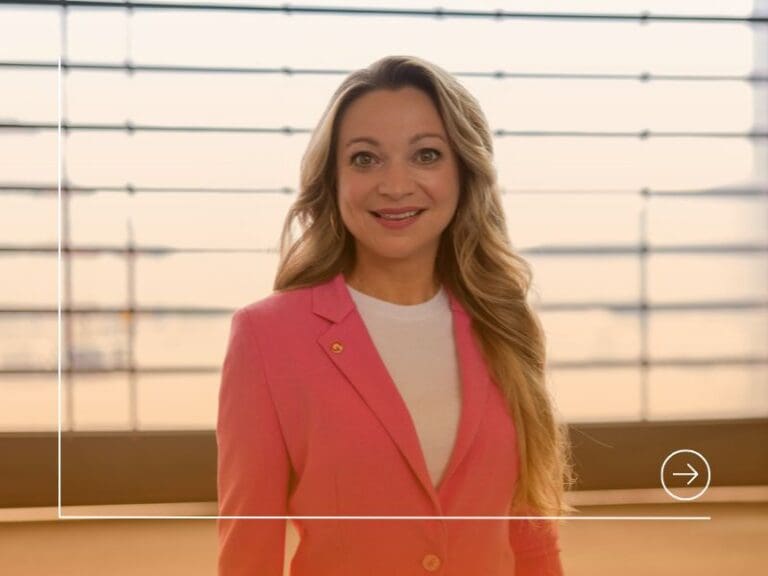IRIS IS A TRAINED CHEMIST WHO FOUND HER PASSION IN CLIMATE TECH INVESTING.
During her research years, she was working on the fundamentals behind converting CO2 into sustainable fuels and started wondering: “how can I make a bigger impact?” Converting greenhouse gas CO2 into sustainable products had been a dream of hers since 2017. At that time, she was conducting research for her master’s at the Chemical Engineering department at Stanford University. Before going on a weekend trip, she was at the airport and thinking: “what if I could just buy a bottle of booze to offset the carbon footprint of my travels?”
Although her hunger for a deeper understanding led her to continue in academia for a few more years, last year she decided that it was time to spin out of the academic world. Building on prior knowledge from a minor in business and entrepreneurship as well as inspiration from living in Silicon Valley, she turned to climate tech venture capital. As Head of Science at Extantia Capital, she feels like she can finally make the impact she always wanted to make. Apart from being the in-house chemist, she’s also an investor and a thought leader.
HOW DID YOU LAND YOUR CURRENT ROLE? WAS IT PLANNED?
As a chemist, you typically don’t know much about venture capital, the realm of startup investing. The birthplace of venture capital is Silicon Valley and I was lucky enough to spend some time there back in 2017. This was the first time I ever heard of it and although it sparked my interest, I decided to continue in academic research for a few more years. I’ve always been a curious person and felt like there were a lot of fundamentals left for me to learn. Eventually, the academic ivory tower became frustrating as cool concepts from the lab were rarely applied in the real world. So I started looking into my options outside of academia.
Bear with me, because this is where it becomes a bit random. My research at the time was focused on making sustainable fuels from CO2, a topic that slowly started gaining traction. So I was thinking: some investor must care about this and googled “venture capital CO2”. Extantia Capital was one of the first funds that popped up and they had this “Head of Science” position open. It felt a bit like a leap of faith because I didn’t know anybody in the venture capital world and simply sent out a cold application. Luckily, the team gave me a chance. We started talking, one thing led to the other and I landed the role.
WHAT ARE THE KEY ROLES IN YOUR FIELD OF WORK, AND WHY DID YOU CHOOSE YOUR CURRENT EXPERTISE?
The classical venture capital structure would consist (top to bottom) of partners, principals, investment associates, and analysts. Although “Head of Science” is not a very common role in the venture capital world, it is an instrumental role in climate tech investing. Most climate tech solutions require a deeper technical understanding and sometimes address new markets that did not exist previously.
By training, I’m a chemist, not an investor. I’m passionate about supporting startup founders to make an impact in the real world through the development of emerging climate technologies. This led me to a career switch: from academia to climate tech venture capital. As “Head of Science”, I get to be both a domain expert in chemistry as well as an investor. What drives me is helping technical founders communicate their solutions and converting as many investors as possible to climate tech.
We need all hands on deck to stop climate change.
Besides, as both chemistry and investing are highly male-dominated fields, I’m passionate about bringing more women into the climate tech scene.
DID YOU (OR DO YOU) HAVE A ROLE MODEL IN TECH OR BUSINESS IN GENERAL?
Although I really hope that this will change in the future, my current role models are mostly men. What generally inspires me is a charismatic and gracious character with an inclusive and supportive leadership style. For example, John Doerr: a venture capitalist who headed the firm Kleiner Perkins for a long time. He’s also a father of 2 daughters and since the 2010s he actively tried to improve gender diversity in the firm. He hired more women and tried to support them to achieve their career goals. Moreover, he was one of the first movers in Silicon Valley on “cleantech 1.0”. Although this led to financial losses on his end, he already saw the importance of fighting climate change back then. Now, a new wave of climate tech startups is on the rise and John Doerr is backing them too. In his book Speed & Scale, he outlines a concrete action plan to solve the climate crisis.
WHAT ARE YOU MOST PROUD OF IN YOUR CAREER, SO FAR?
I would probably say my career switch from academic chemist to climate tech venture capital investor. Taking a leap of faith and sending out a cold application required me to overcome fear of failure and rejection. I’m so glad I did it though. At Extantia Capital, I get the opportunity to speak with so many inspiring people and I learn new things every single day.
WHAT DOES AN AVERAGE WORK DAY LOOK LIKE FOR YOU?
Generally, I schedule my work week as follows: Mondays through Wednesdays are mostly reserved for meetings. Like most venture capital firms, we normally start our Monday morning with a deal flow meeting to discuss the startups that we spoke with in the previous week. Apart from that, these three days are typically a mix of internal meetings and meetings with startup founders or fellow investors.
I try to reserve Thursdays and Fridays for focus time. These days, I will be working on rigorous deep dives in specific climate tech sectors, such as green ammonia. The main purpose of these deep dives is to identify early-stage startups that could benefit from venture capital funding. To do this, we define the current state-of-the-art technologies and look for (scientific) breakthroughs. Based on the findings, we will reach out to startups or founders that fit the identified criteria.
HAVE YOU EVER FACED INSECURITIES AND ANXIETIES DURING YOUR CAREER, AND HOW DID YOU OVERCOME THEM?
Absolutely. I’ve generally had fear of failure since I was a young girl. During exam weeks in high school, I would often experience high stress levels, mental breakdowns, and sleepless nights the day before an exam. Ironically, I finished high school cum laude, so there was no actual need to feel that anxious. I’ve always kept these feelings with me, but try to mitigate them by visualising a positive outcome instead of a negative one. Besides, both sports and meditation have been effective coping mechanisms too.
ENTERING THE WORLD OF WORK CAN BE DAUNTING. DO YOU HAVE ANY WORDS OF ADVICE FOR ANYONE FEELING OVERWHELMED?
Take a few deep breaths. Try to visualise a positive outcome when a situation makes you feel overwhelmed. Look at the situation with curiosity instead of judgement. Don’t ruminate on situations, but address them when they arise. And trust your gut feeling. It will all be alright in the end.
Otherwise, make sure to surround yourself with a supportive team of inspirational people. Human interactions are everything.
WHAT ADVICE WOULD YOU GIVE OTHER WOMEN WANTING TO REACH THEIR CAREER GOALS IN TECHNOLOGY?
Demand what you need to grow. Don’t hesitate to ask and visualise a positive outcome of the situation if fears or doubts come up. Men do this all the time, often without giving it any second thought. And so can you!








